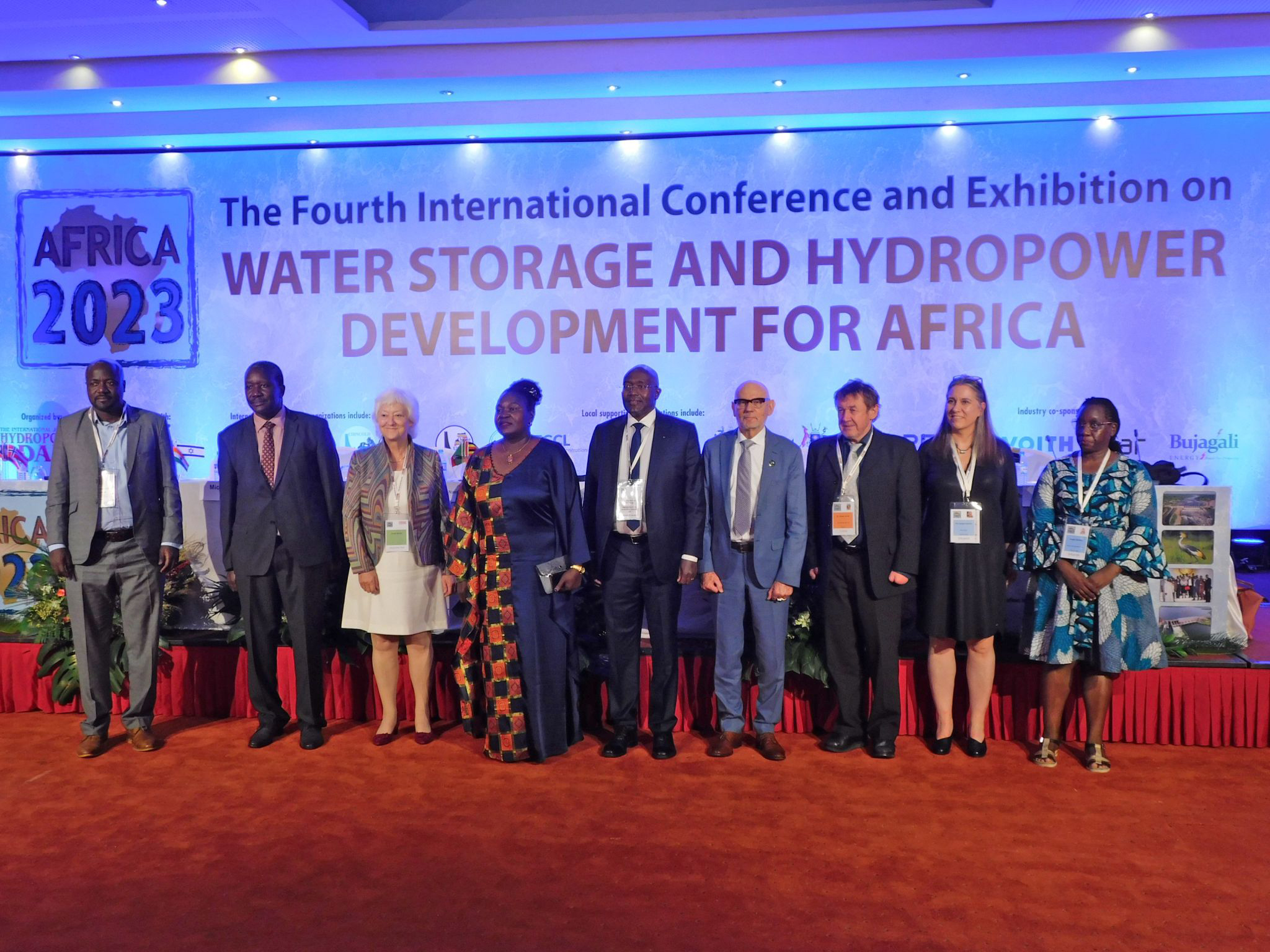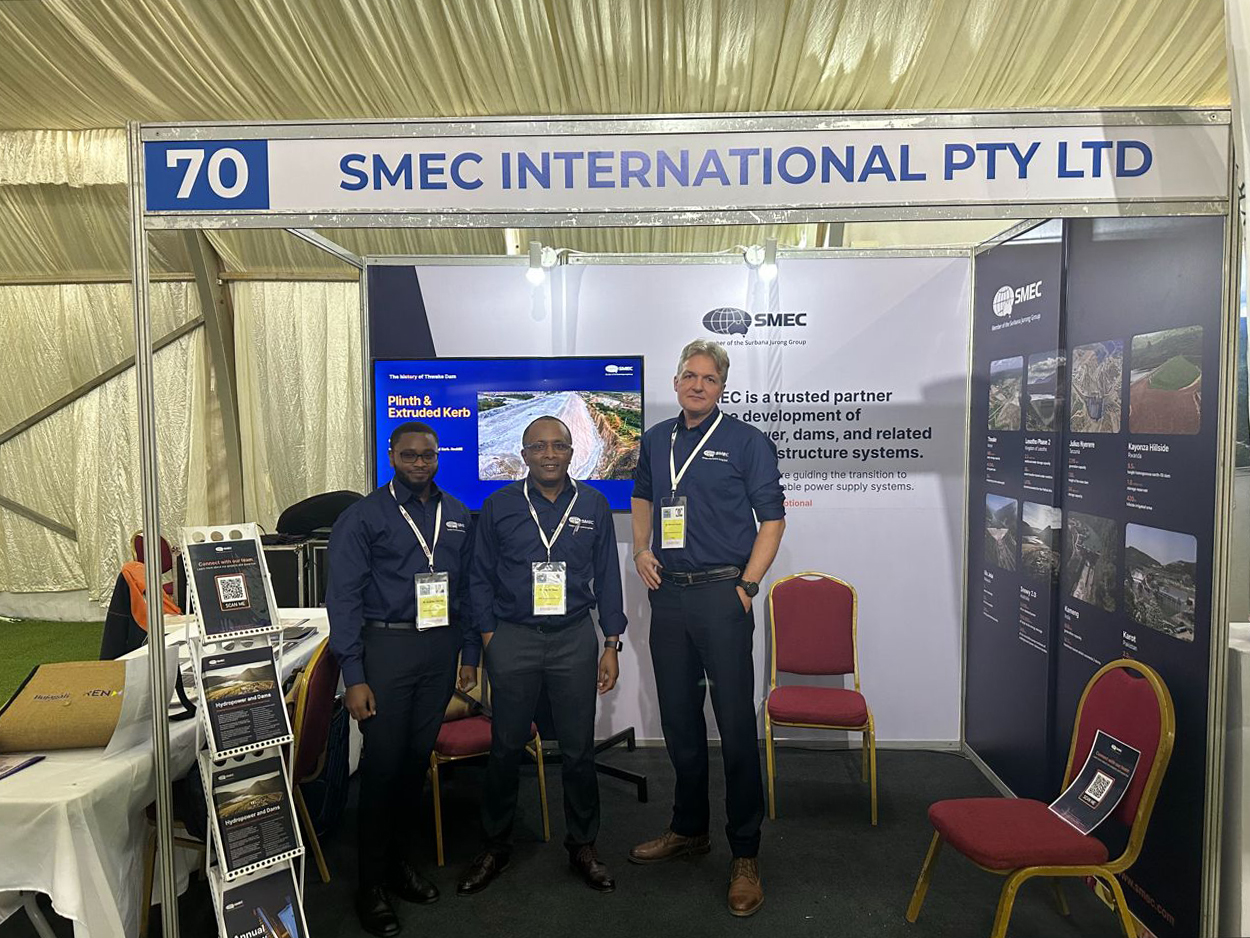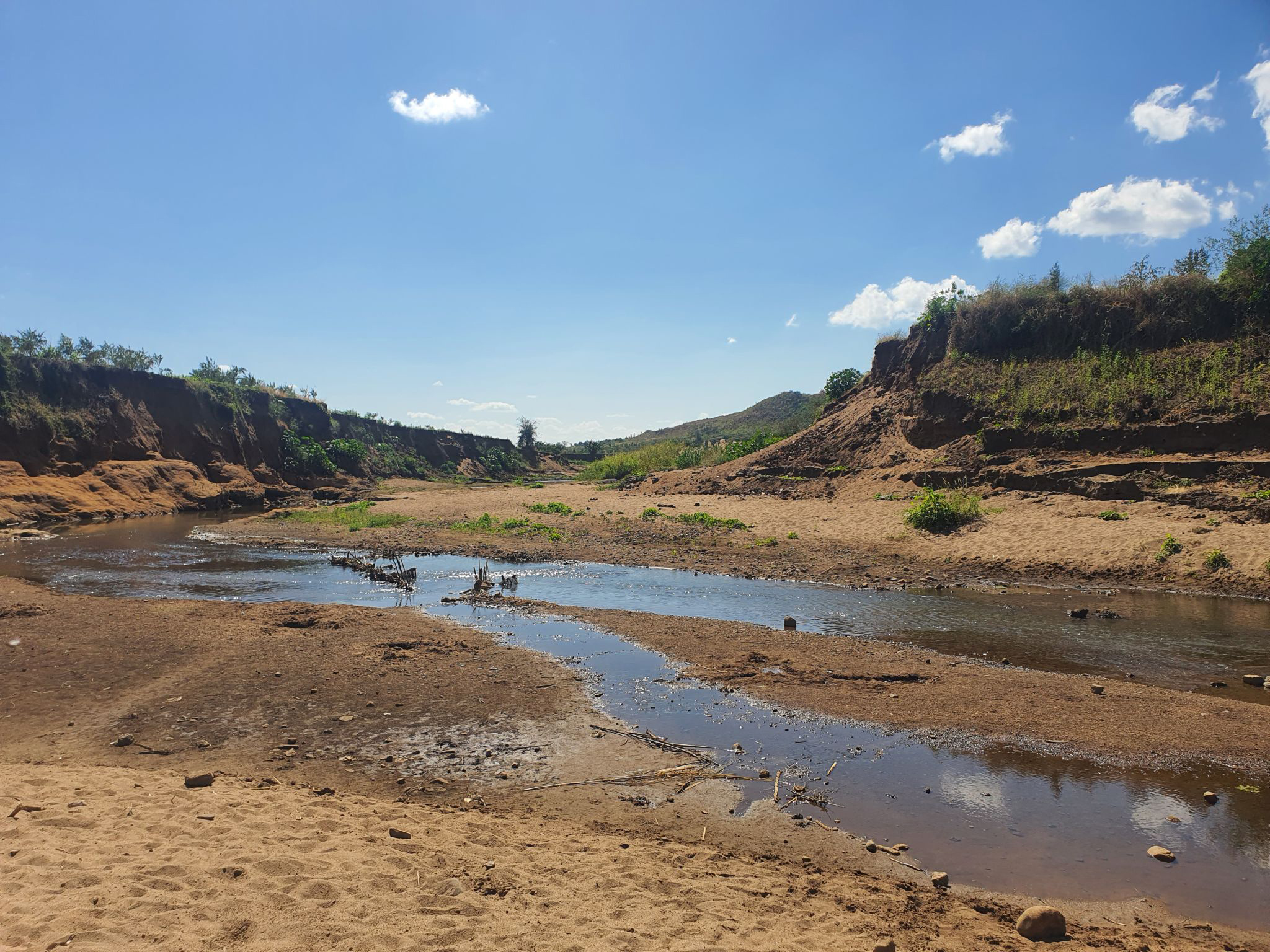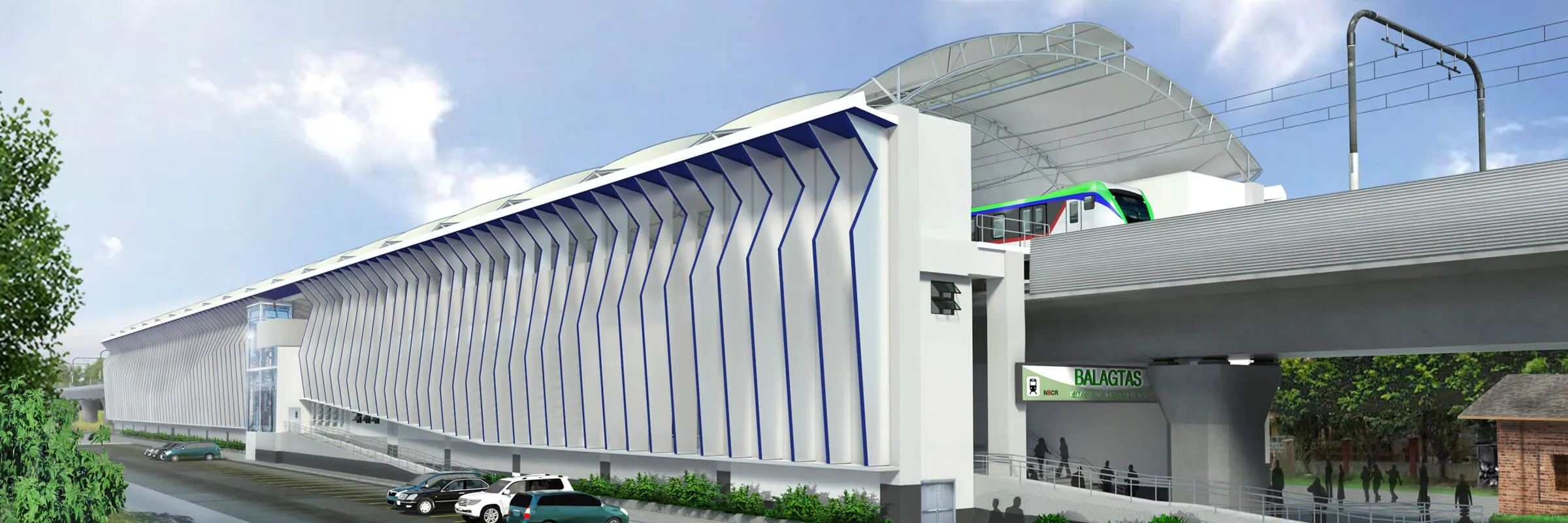
There is significant hydropower potential across continent with SMEC currently supporting investigations and design for projects in Uganda, Malawi, Rwanda, Ethiopia, South Sadan, Sierra Leone, Liberia, and Tanzania.
The key takeaways from the conference will be important for informing the development of new hydropower projects and for ensuring that hydropower is used in a sustainable way. Some of the trending topics discussed at the conference included:
- Funding and international cooperation: Private financing as well as availability of sovereign funding has a significant impact on project implementation. Substantial upfront investment competes with social priorities in emerging economies; creating opportunities for Public Private Partnership funding models promoting investment in the Africa renewables sector. Two major International Financial Institutions, the World Bank and African Development Bank, were both represented across many of the sessions, providing valuable insights.
- Capacity Building: Development of the Hydropower sector in Africa is hindered by a scarcity in professional expertise at all levels. Consequently, project approvals and decision processes are delayed and may not follow strict project governance practices. Therefore, collaboration at all levels and across all sectors should be a priority for development of professional expertise. International organizations, such as ICOLD, are well positioned in respect of providing meaningful support in respect of sector capacity building as well as establishing professional standards.
- Dam safety: Many large hydropower schemes implemented in Africa are approaching their expected service lives. ICOLD advocated for mandatory deployment of a dam safety experts for all project phases.
- Technical design & innovation: The adoption of hybrid schemes (solar and hydropower) showed promising results in respect of improving commercial viability of hydropower projects.
- Power infrastructure and transmission: Development and extension of transmission networks in various power pools remains critical for implementation and integration of HPP schemes
- Sustainability: The Environmental and Social Impact Assessment (ESIA) process provides essential information and tools and mitigation measures to support the sustainable development and operation of HPPs.
- The role of hydropower in rural development: Small-scale hydropower provides significant opportunities to support rural economic development through provision of reliable and affordable electricity. The African continent offers substantial opportunities in respect of small-scale hydropower.
The conference provided a valuable opportunity for collaboration of industry stakeholders and professionals with the intention of sustainable development and climate mitigation. Climate change is having a devastating impact on rivers in sub-Saharan Africa. The region is already experiencing rising temperatures, droughts, and changing rainfall patterns which leaves land prone to flooding. At the same time, deforestation, unsustainable water abstraction practices, and poor agricultural practices have led to a drop in the water table during the dry season and disproportionate runoff.
The poor and marginalized are the most vulnerable to the adverse impacts on rivers. These groups often lack access to clean water and sanitation and are more likely to be displaced by floods or droughts. Dams can offer a range of advantages, including water storage and flood control. However, they must be implemented with climate action and watershed management policy for a sustainable and secure future for clean water.



Related
insights
 A Strategic Outlook on Future-Ready Aviation and the Need for Industry Change
A Strategic Outlook on Future-Ready Aviation and the Need for Industry Change
Airports worldwide are investing billions annually to keep pace with the surging demand for travel.
 IoT at Msikaba Bridge
IoT at Msikaba Bridge
Advancements in digital and Internet of Things (IoT) technology are reshaping how we design, operate, and maintain mega structures.
 Torsion: The Silent Killer of Intake Towers
Torsion: The Silent Killer of Intake Towers
Torsion is often neglected in the seismic analysis of intake towers, both for new and existing designs, due to its complexity and limited guidance in manuals. This neglect stems from the assumption that torsional effects are insignificant or that the reinforcement for shear and bending moments can also handle torsion.
 Debunking the myths of a Digital Mindset – it’s a people thing
Debunking the myths of a Digital Mindset – it’s a people thing
Digital transformation is well established throughout Engineering Consultancies, with digital teams and digital tools peppered throughout service offerings. While these services and tools provide strong value, the greater advantage comes when an organisation embraces a digital mindset; harnessing technology, data, and continuous learning to deliver truly exceptional outcomes for our clients and communities.




